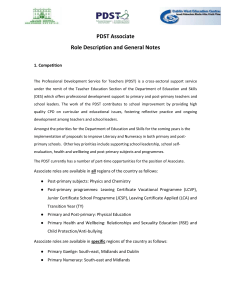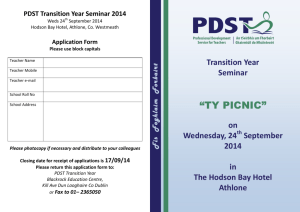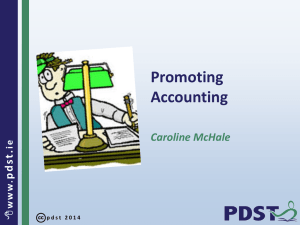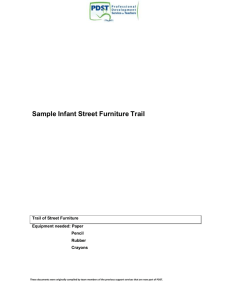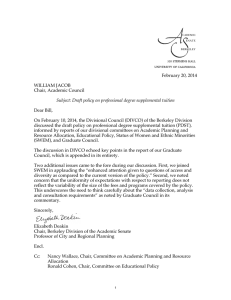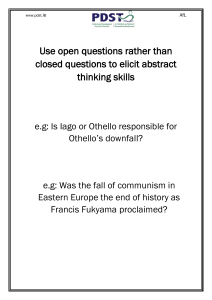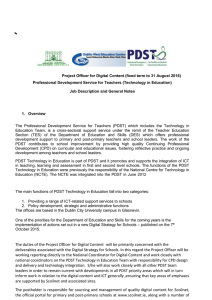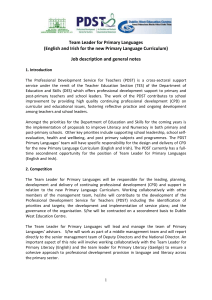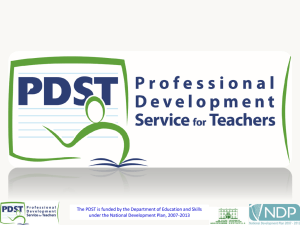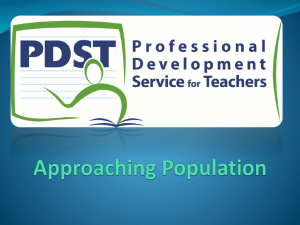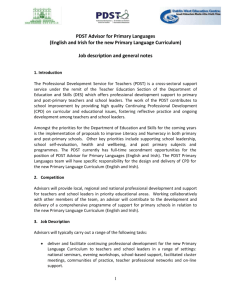PDST Art Associate
advertisement
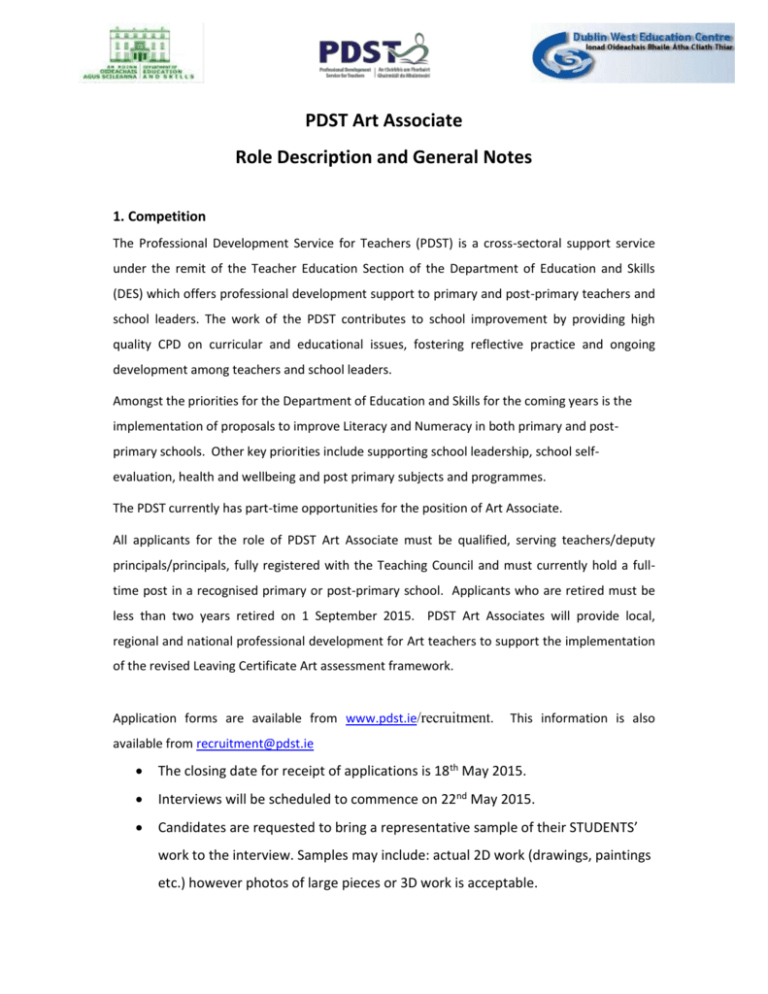
PDST Art Associate Role Description and General Notes 1. Competition The Professional Development Service for Teachers (PDST) is a cross-sectoral support service under the remit of the Teacher Education Section of the Department of Education and Skills (DES) which offers professional development support to primary and post-primary teachers and school leaders. The work of the PDST contributes to school improvement by providing high quality CPD on curricular and educational issues, fostering reflective practice and ongoing development among teachers and school leaders. Amongst the priorities for the Department of Education and Skills for the coming years is the implementation of proposals to improve Literacy and Numeracy in both primary and postprimary schools. Other key priorities include supporting school leadership, school selfevaluation, health and wellbeing and post primary subjects and programmes. The PDST currently has part-time opportunities for the position of Art Associate. All applicants for the role of PDST Art Associate must be qualified, serving teachers/deputy principals/principals, fully registered with the Teaching Council and must currently hold a fulltime post in a recognised primary or post-primary school. Applicants who are retired must be less than two years retired on 1 September 2015. PDST Art Associates will provide local, regional and national professional development for Art teachers to support the implementation of the revised Leaving Certificate Art assessment framework. Application forms are available from www.pdst.ie/recruitment. This information is also available from recruitment@pdst.ie The closing date for receipt of applications is 18th May 2015. Interviews will be scheduled to commence on 22nd May 2015. Candidates are requested to bring a representative sample of their STUDENTS’ work to the interview. Samples may include: actual 2D work (drawings, paintings etc.) however photos of large pieces or 3D work is acceptable. 2. Role Description An Associate is a registered school principal, deputy principal, teacher, or a former school principal, deputy principal or teacher who has maintained his/her registration with the Teaching Council (and, if retired, is less than two years retired on 1 September 2015), who is engaged to work in a part-time capacity with a support service. Associates may work for a maximum of 20 days or 40 interaction units (all programmes/regions combined) which are eligible for substitute cover, subject to Board of Management approval. Any payment for hours worked up to 3.5 hours per day is considered as one unit. Associates will typically carry out a range of the following tasks: design and prepare resource materials for professional development and support deliver continued professional development on national and local priorities through national seminars, evening workshops, school-based support, facilitated clusters, communities of practice, teacher professional networks and on-line support support the integration of ICT into teaching and learning work with teachers and school leaders to promote and demonstrate exemplars of effective teaching and learning strategies, approaches and methodologies across a range of curricular areas advise and support teachers and school leaders in school improvement: school selfevaluation, setting targets and implementing the school improvement plan liaise and collaborate with other members of the team, associate trainers and local facilitators, as required, to ensure cohesion and consistency in service flexibility will be required by associates to work in a number of areas, including engagement in school-based action, research, coaching and mentoring. assist with the development and subsequent delivery of a range of support materials to be used as part of a national programme of in-service to support the implementation of the revised Leaving Certificate Art assessment framework. 2. Range of knowledge, experience and skills required: Ideally the successful candidate will have a range of expertise in the following areas: ● involvement in curricular innovation/development and/or experience in the design and delivery of teacher professional development including evidence of a capacity to mobilise and support teacher reflection, enquiry and classroom-based research. ● a thorough knowledge of the education system generally and an in-depth knowledge of the curriculum at primary or post primary-levels. ● in-depth knowledge and expertise in a particular area such as language teaching (English and/or Irish), literacy, numeracy, learning-support, leadership, planning, section 24, curricular areas, DEIS/SSE/school improvement, junior and/or senior cycle subjects and programme(s). ● ability to support whole-school improvement and grow leadership capacity in others. ● capacity to work independently and as part of a team. ● excellent interpersonal, communication, facilitation and presentation skills. ● capacity to work in specific and generic areas of support. ● ability to pro-actively organise and coordinate the work of others. ● excellent organisational, management and ICT skills. ● an enterprising approach to tasks and the capability to undertake the innovative and challenging elements of the work. ● flexibility to meet the needs of the organisation, including a willingness to engage in travel and/or evening work as necessary. ● experience of teaching/working through the medium of Irish and fluency in the language will be an advantage for all posts and is a requirement for some. ● successful candidates will be required to have their own means of transport and to possess and retain a full driving licence. ● public service travel and subsistence rates will apply and will be calculated from your local designated Education Centre, or home, as appropriate. ● successful candidates will have a very high level expertise in teaching and learning in Art, be innovative in the field, have had experience in implementing new technologies/skills/ approaches in the classroom and have a very high standard of expectation and learning relative to the levels of ability of the students in their care. Samples of art work carried out in the classroom should be brought to interview to help demonstrate the above.
